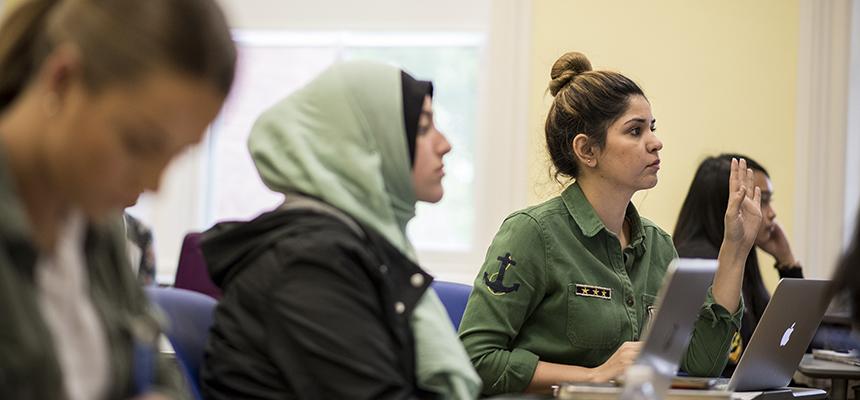Instructional Leadership for Changing Populations

The program requires elements common to all doctoral studies:
- Research Methods
- Comprehensive Examinations
- Research Seminar
- Dissertation
What to Expect Studying at Notre Dame of Maryland University
The mission of Notre Dame of Maryland University’s School of Education is to serve as a catalytic change agent by educating leaders to transform the world. To achieve this, we provide distinctive undergraduate and graduate programs that challenge women and men to strive for intellectual and professional excellence, to build inclusive and diverse communities, to engage in service to others, and to promote social responsibility. In addition to taking courses in relevant topics related to instructional leadership, candidates also engage in discussions and activities that support understanding and development of students representing the changing populations in our schools. Through the rigorous process of completing comprehensive exams and a dissertation, students are prepared to publish research related to their area of interest and present at national and international conferences.
With award-winning teacher certification programs nationally recognized by the Council for the Accreditation of Educator Preparation (CAEP), you can expect to benefit from small class sizes, expert faculty, and practical field experiences.
Dissertation
The dissertation is the culmination of your doctoral studies. Through the Dissertation Seminar(s), you will receive assistance in the process of preparing your dissertation proposal.
In this scholarly work of original and independent research, you will:
- Address a problem or issue relevant to education;
- Conduct research that is quantitative, qualitative, or historical/philosophical (depending on the chosen subject); and
- Develop a dissertation that adds to the knowledge in the field.
Resources
Careers
Students who complete the Ph.D. program in Instructional Leadership are prepared to bring a better understanding of the policies, curriculum, students’ language development, and historical and philosophical context of educational leadership to their classrooms, their schools, and their districts. After completing the degree, many choose to remain in the classroom, teaching students with a new understanding of the complexities involved in educating changing populations. Some move into administrative positions such as assistant principals or principals where they can have a broader impact on school policy, professional development for teachers, and student learning success. Others have taken administrative positions at the county level, working across many divisions to analyze individual schools’ progress in meeting the needs of diverse populations.


